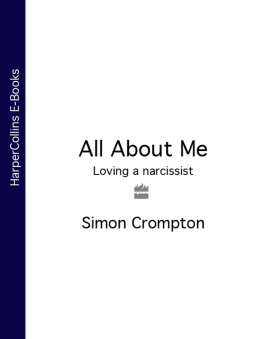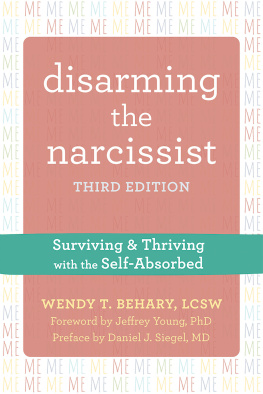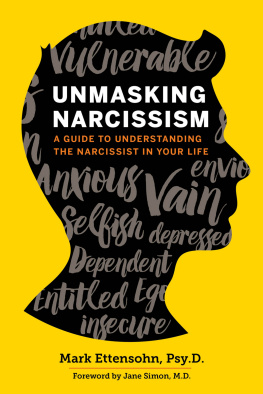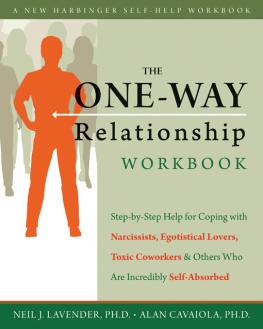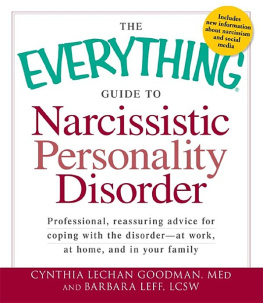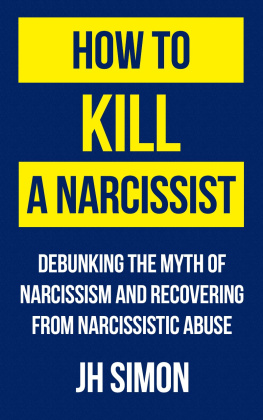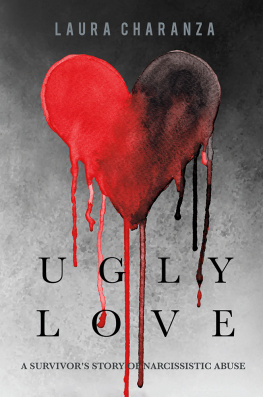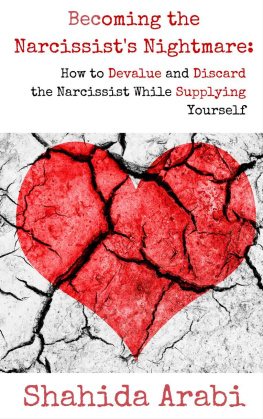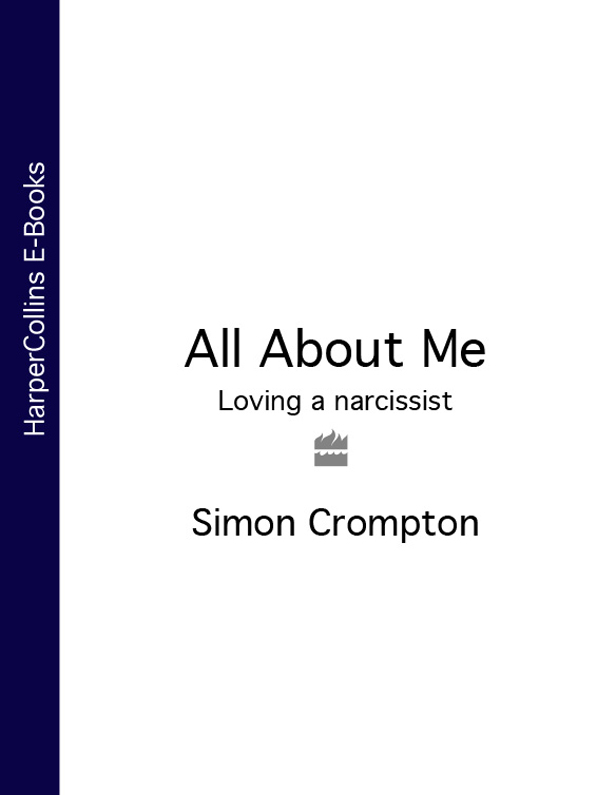CONTENTS
Why do women fall in love with bad guys? Its a question that worried me and countless other males in their tender years when we never seemed to get the girl. It was always the mean, arrogant ones who seemed to succeed.
Why was it, I asked myself as I struggled to make an impression in my twenties, that the same self-centred showoffs who got the girls were now also getting the top jobs and glamorous lifestyles? They seemed to be rising to the top like cream (or fat, depending on your perspective). Whatever happened to the benefits of trying to be a nice guy?
Not that I was bitter. But then, as the years rolled on, I saw my arguably warped perspective changing, and what emerged was not pretty. I saw the relationships involving moody self-glorifiers proving far from idyllic and beginning to break up. I saw those grandiose schemes and high-flying lifestyles begin to crumble. And there seemed to be an awful lot of collateral damage and emotional debris left in these peoples wake.
This, in a sense, is what this book is about. Its about a type of human personality glamorous, self-centred, difficult, and intensely vulnerable that we call narcissistic. Narcissists are people who are full of big ideas of themselves and for themselves, but they need others to reflect their glory, and find real empathy almost impossible. They are people who mean trouble when it comes to relationships.
There are a lot of them around, and youre bound to have come across them. In fact, if youve picked up this book, youre probably wondering whether your partner is a narcissist or not. Its a good question, and the answer is probably yes although, as well see, theres a world of a difference between someone who shows narcissistic traits, which is far from uncommon, and someone who is a full-blown narcissistic personality.
This book is about the hold narcissists have on us how they are easy to fall in love with, how they have a major influence on our culture, how they can damage the lives of those around them, and how they can be incredibly hard to disentangle yourself from.
But its also a book about all of us. Narcissism is a concept, not a diagnosis. In other words, it describes common characteristics in human beings. We all need a bit of narcissism a bit of self-centredness, a bit of overwhelming self-regard to be able do anything, to feel good about ourselves, to impose ourselves a little. Its just that in some people, those tendencies can be consistently dominant, even overwhelming, and that means trouble.
Ever spent much time with a toddler? Then youll have experienced narcissism. For all their allure, babies and toddlers are unable to see the world from anyone elses perspective apart from their own. Dont get what you want? Then throw your rattle out of the pram. Its quite natural and programmed into them into all human beings. But as we get older, through the influence of our parents and others, most of us lose that self-regarding, impulsive streak to a greater or lesser extent we learn that there are consequences to our actions, and that we have to take into account the needs and wants of others if we are to be happy.
Throughout history, some of us have never learned those lessons, and continue to act like toddlers. Its part of human life, achievement and tragedy, and it influences every one of us. Its narcissism, and it makes us the flawed and fascinating things we are.
Once you begin to understand narcissism and to use it as a lens through which to see much of human behaviour then lots of things that are mystifying and frustrating about people, relationships and our culture begin to fall into place. Relationships in particular.
Take this plea for help in an online agony column:

Hi. This may seem silly but it hurts me. The thing is, my friends invite me and my boyfriend out every time they are going out, and when I ask my boyfriend if he wants to go out he always makes up an excuse. Like on Saturday, my friends had arranged to go for a night out and asked me and my boyfriend to go, and when I asked him he said maybe. Then two hours later he said he wasnt feeling well. But then his sister phoned and asked if we wanted to go and play pool and he said yeah. We got into an argument because I thought he was being selfish, because my friends had asked first. When I asked if he had a problem with my friends, he said no, he just didnt want to go. We ended up staying in that night but he hardly spoke to me. I asked him the following morning why he had hardly spoken to me the night before. He said that it was because he wanted to go play pool. Is he being selfish, or am I just being silly?

As the writer says, this sounds like old-fashioned selfishness. But it can also be explained by her boyfriend showing narcissism a particular form of selfishness that targets people with either lavish attention or hostility, that makes loved ones isolated, and that blames others for personal shortcomings. As youll see further on in the book, this can have far more disastrous effects on relationships than arguments about not seeing friends.
I was talking to the journalist, novelist and relationships writer Bel Mooney about this. The idea of narcissism, she said, helped explain many of the letters she got from readers writing in to her regular advice column in The Times. In recent years, she said, shes noted an increase in people writing to her who are, to use an old-fashioned phrase, self-centred.
Its all I, I, I, I, I, she said. They go on about themselves in a very self-indulgent way, talking about how they need to find themselves and so on. And I think, Why are you asking me what to do, because what you really want me to do is to confirm what you are feeling, and if I challenge it you arent going to like it. And I think, how are those people going to be in a relationship? And Id say dire.
You get letters from these sorts of people wishing that others could be satellites around their sun. Ive been amazed at the number of stories like that Ive had since I started the column people who are so lacking in empathy that you feel something is very missing. The problem is serious because at its more extreme end it can go into personality disorder.
She told me of one letter from a man whose 40-year-old wife had become increasingly obsessive about her appearance and weight, constantly going to the gym. He discovered she was having a relationship with another man at the gym because of the texts she had been sending him, and when he confronted her with this she became violent and abusive with him in front of the children. She became increasingly critical of him, and then asked for a separation. I dont know whether thats narcissism or not, but it is common and extremely cruel, Bel told me.
Well, yes, it is narcissism, and it does manifest itself in very cruel ways in relationships. But as well see in the rest of this book, the concept of narcissism also throws light on all sorts of other aspects of our lives: it makes sense of our ideas of romantic heroes, of obsessively driven high-achievers, of compulsive liars and doomed and deluded dreamers. It makes sense of our glamour-led, celebrity-obsessed culture. It makes sense of our societys obsession with high-achievement and winning at all costs. It even makes sense of our Truman Show-style love affair with reality television, and all those X Factor contenders who believe against all the evidence that they really will be the next Christina Aguilera or Justin Timberlake.

